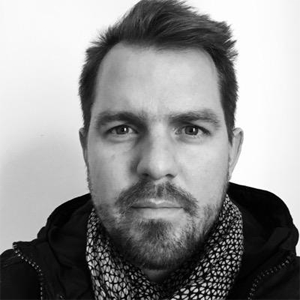
In a country plagued by endemic violence and social inequality, psychologists cannot constrain themselves to the four walls of consulting rooms. To meet the needs of its patients, psychology must rethink its identity and voice in the fight for social justice, writes community service clinical psychologist Garret Barnwell.
Misdistribution of psychologists
South Africa is a country in which evolving structural violence continues to perpetuate deep-rooted inequality, poverty and social injustice. The mental health sector is not immune to this and often struggles with the same issues faced on a societal level.
Not only do we see it in the lives of our patients, but we experience a structural violence of our own in, for instance, the continued focus on institutionalised care and misdistribution of psychologists.
While the public mental health sector can claim recent gains, such as the development of progressive National Mental Health Care Policy Framework and Strategic Plan 2013-2020, the majority of South Africa’s socioeconomically disadvantaged people still do not have access to adequate psychological services despite a clear demand. Mental health care services remain centralised in large urban hospitals, while rural communities and smaller urban areas are essentially public mental healthcare wastelands.
Read: Bi, gay people use mental care more
Strikingly, psychology is one of the most unequally distributed health professions in South Africa. Just fewer than 50 percent of psychologists live and work in Gauteng, despite the province only accounting for under a quarter of the population.
The majority of psychologists do not work for the majority of South Africans; rather the industry is focused towards private clients who have the economic means to afford private psychological services.
Disempowered, helpless and hopeless
Psychologists are playing a defensive game. We triage cases and marginally address symptoms rather than attempting to influence the psychosocial determinants of mental distress.
This despite witnessing daily how factors like poverty, gender-based violence and environmental degradation manifest and present themselves in our clinics as depression, anxiety, trauma, grief, substance-use and self-harm.
These injustices can make people feel disempowered, helpless and hopeless. As mental healthcare workers, we are not unfamiliar with patients’ lack of enthusiasm or desperation when engaging with the mental health care system.
Read: Healers and schemes
And while we perhaps too often blame patients for treatment non-adherence and failure, these may be responses to a mental healthcare system that does not meet their needs – i.e. the needs of the most vulnerable. South African psychologists need to become more engaged in advocating for social justice to respond to the challenges faced by the majority of people living in South Africa.
We, as psychologists, can either choose to be complicit in the maintenance of structural disparities or contribute to the transformation of the system. The later would require a major shift for the discipline in the country.
Oppressive political and social structures
Psychologists must undergo a conscientisation process that leads to the recognition of our relationship to factors that maintain inequities for instance the lack of standards and guidelines that may contribute to poor quality of care as I have found with previous research I carried out in the Eastern Cape.
In adopting this shift, it may be helpful to draw lessons from Latin America’s school of liberation psychology, which actively seeks to understand the psychology of oppressed and impoverished communities by addressing the oppressive political or social structures in which these communities live.
Read: Poverty as child shapes neurobiology
One of the school’s founder’s, psychologist Ignacio Martin-Baro, believed that psychologists must align themselves with those who are oppressed by social injustices. Psychologists, he posited, had a duty to be activists in their own ways but if the profession wanted to embark on the “road to liberation”, it would have to “break out of its own enslavement first”, he cautioned.
We must become advocates for social justice and this need must begin to undergird the discussions and, most importantly, the actions we as psychologists take.
We cannot be apolitical
It is my belief that psychology in South Africa has neglected socially relevant causes by its proportional investment in market-relevant activities over the last two decades. While this was justifiable for, for instance, the development of national associations, the underinvestment in responding to the needs of the majority of South Africans who are socioeconomically disadvantaged is unjustifiable for associations and academic institutions in the long-term.
Read: Boost from poverty helps kids
This shift cannot be theoretical; social justice requires psychologists to actively associate. Confronted with the current configuration, we cannot be apolitical.
Garret Barnwell is a community service clinical psychologist at Chris Hani Baragwanath Academic Hospital. He has worked nationally and internationally in health and humanitarian assistance.
He is the secretary of Psychological Society of South Africa's (PsySSA) Division of Psychology in Public Service and a committee member of the Rural Mental Health Campaign. A version of this column originally appeared in the PsySSA’s quarterly online publication PsyTalk .
This opinion piece was provided by Health-e News.
Read more:
New mental health centre for Africa
Happiness affects human genome
Image: Supplied




 Publications
Publications
 Partners
Partners














